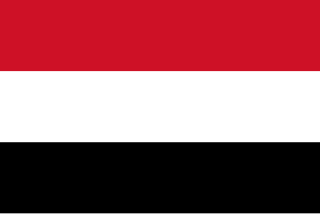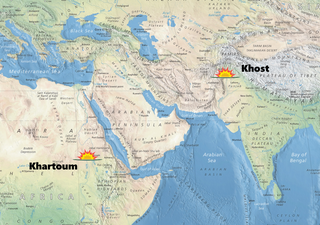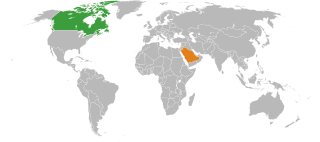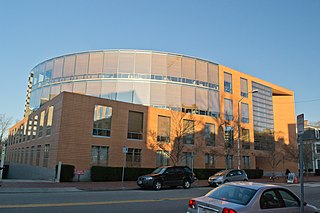
Werner Daum (born 1943) is a German diplomat and author, specialising in the cultural history of Yemen, Sudan and the Arabian Peninsula.

Werner Daum (born 1943) is a German diplomat and author, specialising in the cultural history of Yemen, Sudan and the Arabian Peninsula.
From 1992 to 1995, he was Head of the Human Rights Department in the German mission in Geneva. As such, he represented Germany in the Commission on Human Rights and various other Human Rights organisations of the United Nations in Geneva. After having served as minister-counselor at the German embassy in Tirana, Daum was Germany's ambassador to Sudan from 1996 to 2000.

In 2000–2001, Daum was a fellow at the Weatherhead Center for International Affairs at Harvard University. [1] In the summer of 2001, Daum wrote an article for the Harvard International Review entitled “Universalism and the West — An Agenda for Understanding”, in which he criticised the US government for destroying the Al-Shifa pharmaceutical factory in Khartoum during the 1998 bombing campaign, codenamed Operation Infinite Reach. Having worked in Sudan as ambassador of Germany during the time of the attack, he wrote that there was no evidence that the factory had produced precursors to chemical weapons and that Ghazi Sulayman, an internationally respected Sudanese human rights advocate, was a credible witness to this. Furthermore, Daum claimed that the attack caused a serious shortage in medication and that a "reasonable guess" for the deaths of civilians in Sudan caused by this shortage was in the "tens of thousands". [2] This claim was described as "hard to take seriously" and implausible by historian Keith Windschuttle. [3]
In 1999, the Museum für Völkerkunde, now Museum Fünf Kontinente, (Museum of Ethnography) in Munich, Germany, published Daum's comprehensive catalogue for its exhibition on the cultural history of Yemen. Apart from this, Daum is the author of several other books and articles on the cultural history of Albania, Sudan or Yemen, with a special interest in the pre-Islamic history of Yemen.
{{cite book}}: CS1 maint: location missing publisher (link)It is difficult to assess how many people in this poor African country died as a consequence of the destruction of the Al-Shifa factory, but several tens of thousands seems a reasonable guess.

The Universal Declaration of Human Rights (UDHR) is an international document adopted by the United Nations General Assembly that enshrines the rights and freedoms of all human beings. Drafted by a UN committee chaired by Eleanor Roosevelt, it was accepted by the General Assembly as Resolution 217 during its third session on 10 December 1948 at the Palais de Chaillot in Paris, France. Of the 58 members of the United Nations at the time, 48 voted in favour, none against, eight abstained, and two did not vote.

The al-Shifapharmaceutical factory in Khartoum North, Sudan, was constructed between 1992 and 1996 with components imported from Germany, India, Italy, Sweden, Switzerland, Thailand and the United States. It was opened on 12 July 1997 and bombed by the United States on 20 August 1998. The industrial complex was composed of four buildings. It was the largest pharmaceutical factory in Khartoum and employed over 300 workers, producing medicine both for human and veterinary use.

Yemen, officially the Republic of Yemen, is a country in West Asia. It is located in the southern end of the Arabian Peninsula, and borders Saudi Arabia to the north and Oman to the northeast. It shares maritime borders with Eritrea, Djibouti and Somalia. Covering 555,000 square kilometres and having a coastline of approximately 2,000 kilometres, Yemen is the second-largest Arab sovereign state on the Arabian Peninsula. Sanaa is its constitutionally stated capital and largest city. The country's population is estimated to be 34.4 million as of 2023. Yemen is a member of the Arab League, the United Nations, the Non-Aligned Movement and the Organisation of Islamic Cooperation.

Bassam Tibi, is a Syrian-born German political scientist and professor of international relations specializing in Islamic studies and Middle Eastern studies. He was born in 1944 in Damascus, Syria to an aristocratic family, and moved to West Germany in 1962, where he later became a naturalized citizen in 1976.

Operation Infinite Reach was the codename for American cruise missile strikes on al-Qaeda bases that were launched concurrently across two continents on 20 August 1998. Launched by the U.S. Navy, the strikes hit the al-Shifa pharmaceutical factory in Khartoum, Sudan, and a camp in Khost Province, Afghanistan, in retaliation for al-Qaeda's August 7 bombings of American embassies in Kenya and Tanzania, which killed 224 people and injured over 4,000 others. Operation Infinite Reach was the first time the United States acknowledged a preemptive strike against a violent non-state actor.

Arabization or Arabisation is a sociological process of cultural change in which a non-Arab society becomes Arab, meaning it either directly adopts or becomes strongly influenced by the Arabic language, culture, literature, art, music, and ethnic identity as well as other socio-cultural factors. It is a specific form of cultural assimilation that often includes a language shift. The term applies not only to cultures, but also to individuals, as they acclimate to Arab culture and become "Arabized". Arabization took place after the Muslim conquest of the Middle East and North Africa, as well as during the more recent Arab nationalist policies toward non-Arab minorities in modern Arab states, such as Algeria, Iraq, Syria, Egypt, Bahrain and Sudan.


Human rights in Yemen are seen as problematic. The security forces have been responsible for torture, inhumane treatment and even extrajudicial executions. In recent years there has been some improvement, with the government signing several international human rights treaties, and even appointing a woman, Dr. Wahiba Fara’a, to the role of Minister of the State of Human Rights.

Canada and the Kingdom of Saudi Arabia share robust economic ties; Saudi Arabia represents Canada's second largest trading partner in the Middle East, a relation that was bolstered in February 2014 with the purchase of C$15 billion worth of Canadian arms by Saudi Arabia. Until August 2018, there were over 16,000 Saudi students on government scholarships in Canada.

This timeline lists the dates of the first women's suffrage in Muslim majority countries. Dates for the right to vote, suffrage, as distinct from the right to stand for election and hold office, are listed.
Sudan has a conflict in the Darfur area of western Sudan. The Khartoum government had, in the past, given sanctuary to trans-national Islamic terrorists, but, according to the 9/11 Commission Report, ousted al-Qaeda and cooperated with the US against such groups while simultaneously involving itself in human rights abuses in Darfur. There are also transborder issues between Chad and Darfur, and, to a lesser extent, with the Central African Republic.

The Weatherhead Center for International Affairs (WCFIA), formerly Center for International Affairs (CFIA) is a research center for international affairs and the largest international research center within Harvard University’s Faculty of Arts and Sciences. It is sometimes referred to as the Harvard Center for International Affairs.

Andrew J. Nathan is a professor of political science at Columbia University. He specializes in Chinese politics, foreign policy, human rights and political culture. Nathan attended Harvard University, where he earned a B.A. in history, an M.A. in East Asian studies, and a Ph.D. in political science. He has taught at Columbia University since 1971, and currently serves as the chair of the steering committee for the Center for the Study of Human Rights. His previous appointments include as the chair of the Department of Political Science (2003–2006), and chair of the Weatherhead East Asian Institute (1991–1995).

On 26 March 2015, Saudi Arabia, leading a coalition of nine countries from West Asia and North Africa, launched an intervention in Yemen following a request from Yemeni president Abdrabbuh Mansur Hadi for military support after his forces were ousted from Sanaʽa by Houthi insurgents during the Yemeni Civil War. Government forces, Houthi rebels, and other armed groups fought after the draft constitution and power-sharing arrangements collapsed, despite progress made by the UN during the political transition at that time. Violence escalated in mid-2014. Houthis and allied insurgents seized control of Sana'a in September 2014 and thereafter. In response, President Hadi asked Saudi Arabia to intervene against the Iranian-backed Houthis.
Human rights violations, committed by all warring parties, have been widespread throughout the Yemeni civil war. This includes the two main groups involved in the ongoing conflict: forces loyal to the current Yemeni president, Abdrabbuh Mansur Hadi, and Houthis and other forces supporting Ali Abdullah Saleh, the former Yemeni president. Al-Qaeda in the Arabian Peninsula and the Islamic State of Iraq and the Levant have also carried out attacks in Yemen. The Saudi-led coalition, backed by the United States and other nations, has also been accused of violating human rights and breaking international law, especially in regards to airstrikes that repeatedly hit civilian targets.
The right to rest and leisure is the economic, social and cultural right to adequate time away from work and other societal responsibilities. It is linked to the right to work and historical movements for legal limitations on working hours. Today, the right to rest and leisure is recognised in the Universal Declaration of Human Rights, the International Covenant on Economic, Social and Cultural Rights, the Convention on the Rights of the Child, and in many regional texts such as the African Charter on the Rights and Welfare of the Child.
The Declaration on the Rights of Peasants is an UNGA resolution on human rights with "universal understanding", adopted by the United Nations in 2018. The resolution was passed by a vote of 121-8, with 54 members abstaining.
Khalid Albaih or Khalid Wad Albaih is a Sudanese political cartoonist, civil rights activist and freelance journalist, who grew up as member of the Sudanese diaspora in Doha, Qatar. He has published his social and political caricatures and articles mainly in Arab and international online media, and his graphic art has also been publicly exhibited internationally.
Andreas W. Daum is a German-American historian who specializes in modern German and transatlantic history, as well as the history of knowledge and global exploration.

The visual arts of Sudan encompass the historical and contemporary production of objects made by the inhabitants of today's Republic of the Sudan and specific to their respective cultures. This encompasses objects from cultural traditions of the region in North-East Africa historically referred to as the Sudan, including the southern regions that became independent as South Sudan in 2011.